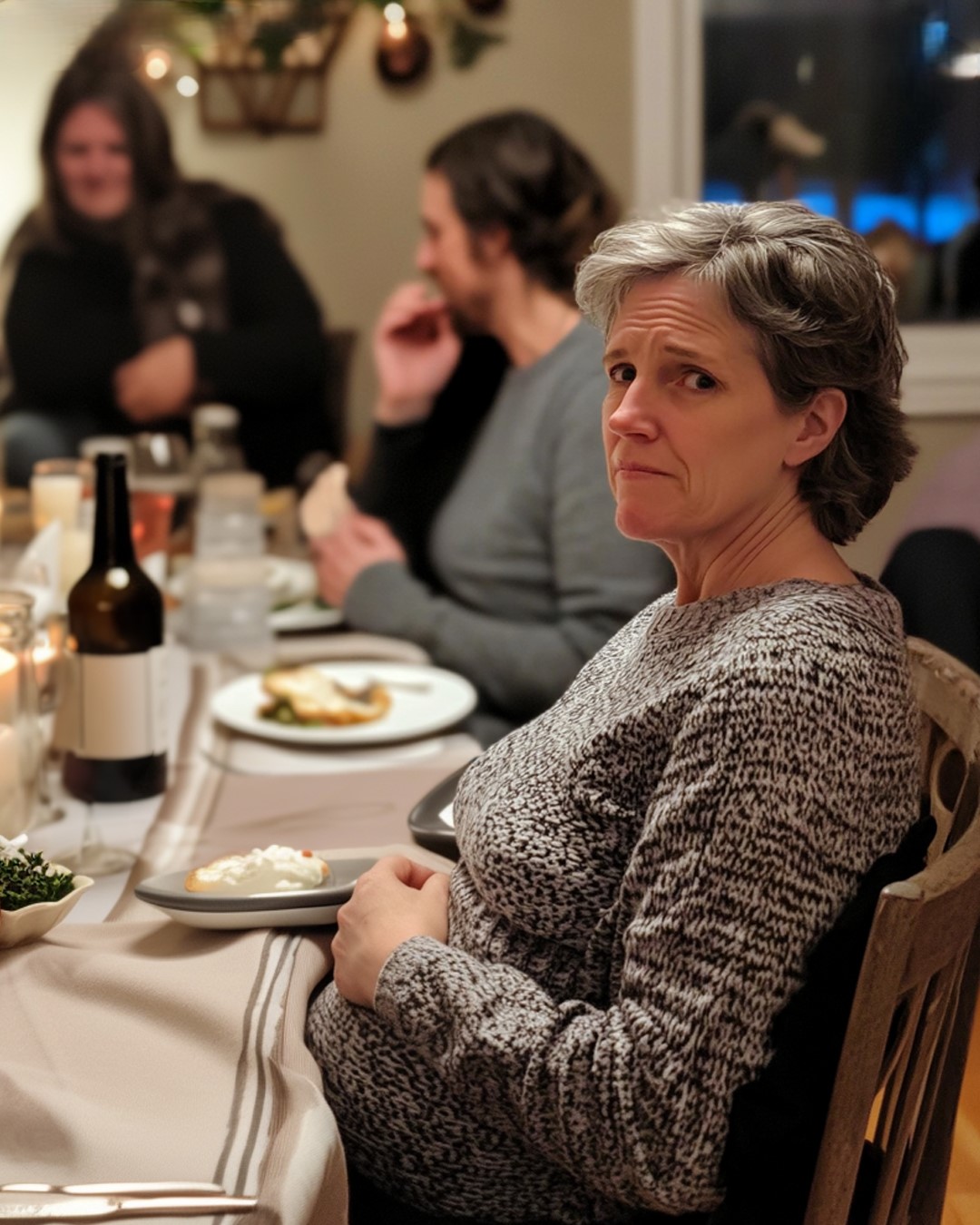Thanksgiving dinner at my house was shaping up to be the usual joyful family gathering. That’s until my mother-in-law, Linda, arrived, clutching her sweater tightly and acting strangely. Something about her behavior felt off, and my instincts were right—what she was hiding left us all stunned.
You know that unshakable feeling when someone walks into a room, and you can just tell something isn’t right? That’s exactly what I experienced when Linda stepped through our door.
Thanksgiving has always been my favorite holiday, filled with laughter, shared stories, and dishes perfected over the years. My husband, Jeff, playfully calls me “the turkey perfectionist,” though I know he secretly loves the tradition just as much.
Jeff and I met seven years ago through a mutual friend. I was skeptical about blind dates, but our connection was instant. Coffee meetups quickly turned into dinner dates, and before long, we were introducing each other to our families.
Jeff’s parents, Linda and Ronny, welcomed me warmly. Ronny, with his kind humor, made me feel at home immediately. Linda, however, was different—not unkind, just reserved, with a quiet, enigmatic presence that made it hard to truly know her.
Over time, I grew to appreciate Linda’s subtle ways of showing care, especially after Jeff and I married and had our daughter, Ava. Linda adored being a grandmother, showering Ava with love and gifts. Life felt perfect—until Ronny’s sudden passing last year.
The loss hit Linda hard. After over three decades of marriage, she struggled to adjust. Grief seemed to isolate her. She withdrew, often declining our dinner invitations and keeping to herself. It hurt to see her pull away, but we chose to give her space, hoping she’d return when ready.
This Thanksgiving, Linda surprised us by agreeing to come. I was thrilled, hoping it marked a turning point. The house was filled with the aroma of roasted turkey and freshly baked pies as Ava and I set the table, excited for the family to arrive.
But when Linda walked in, clutching a bag of treats in one hand and her sweater tightly against her chest with the other, something felt off. She muttered a quick “Happy Thanksgiving” and disappeared into the bathroom, locking the door—a first for her.
When she reappeared, her sweater seemed bulkier, and her demeanor was unusually nervous. She barely touched her food, avoiding eye contact and holding her sweater as if protecting something.
Then, during dinner, a faint sound broke through the chatter—a soft, unmistakable “meow.” Ava’s curious voice rang out: “Grandma, why is your tummy wiggling?”
Linda’s nervous laugh didn’t convince anyone. Jeff leaned in, his tone serious. “Mom, what’s going on? You’ve been acting strange all night.”
Before Linda could respond, Ava tugged gently at her sweater, and suddenly, three tiny heads peeked out. The table erupted in gasps.
Linda sighed and pulled back her sweater, revealing three tiny kittens nestled against her. They meowed softly, blinking at the unfamiliar faces around them.
Through tears, Linda explained. She had found the kittens abandoned in a box on the side of the road. “It was freezing,” she whispered. “I couldn’t leave them there, but I didn’t want to make tonight about me.”
Jeff wrapped an arm around her, his voice gentle. “Mom, you don’t have to go through things alone. We’re here for you, always.”
The tension melted as Ava squealed in delight, christening the kittens Fluffy, Mittens, and Snowball. Linda’s burden seemed lighter as she watched Ava cuddle the kittens, giggling at their clumsy antics.
We helped Linda set up a cozy spot for the kittens in the living room and assured her she was never a burden. That night, as we gathered together, I realized Thanksgiving wasn’t just about food or tradition—it was about family, love, and embracing the unexpected surprises life throws our way.

